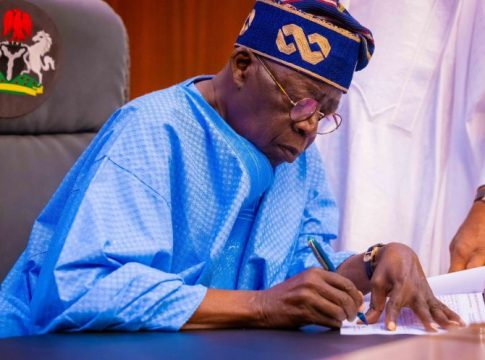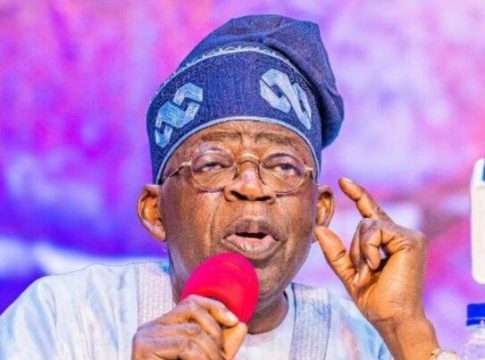Public outcry has erupted across various social media platforms following the enactment of legislation that alters Nigeria’s national anthem, a move perceived by some as lacking in extensive public discourse.
As reported earlier that President Bola Tinubu ratified the bill, which reinstates the country’s previous anthem, “Nigeria, We Hail Thee,” a tune initially set aside by a military regime in 1978. Penned by Lillian Jean Williams and harmonized by Frances Berda in 1959, the anthem echoes the nation’s rich diversity, a sentiment President Tinubu highlighted on his first-year anniversary in office.
However, this decision has been subject to scrutiny among the populace amidst the current cost-of-living challenges confronting the nation.
A slew of Nigerians have voiced their discontent online, pointing to more pressing national concerns like pervasive insecurity, soaring inflation rates, and the ongoing foreign exchange predicament.
One social media user, @Gospel_rxx, criticized the government’s focus, commenting, “A new national anthem is the priority for Tinubu & Co at a time like this, When our people can’t eat, insecurity is rife & life is hell? What a sordid joke!!. Lets see how they implement it…”
READ MORE: Senate, House Of Reps Plan For Joint Session Towards Celebration Of Democracy
Fola Folayan, another user, expressed indignation over the legislature’s swift passage of the bill, tagging the switch back to a colonial-era anthem as regressive. Former Education Minister Oby Ezekwesili took to X to announce her refusal to adopt the reinstated song, instead pledging her allegiance to “Arise O Compatriots,” the anthem that had been in place for nearly half a century.
The debate broadens as former presidential aide Bashir Ahmad relays a new proposition on social media, pondering whether a change in Nigeria’s name and national flag should also be considered.
Meanwhile, Tahir Mongunu, the parliamentary committee’s chair responsible for the bill’s success, defended the action, describing it as “apt, timely and important,” despite the furor it has ignited.
As the controversy ripples through the country, it underscores the tensions between national pride and identity, and the pressing economic and societal issues facing Nigeria today.
SOURCE: Africa Today News, New York




